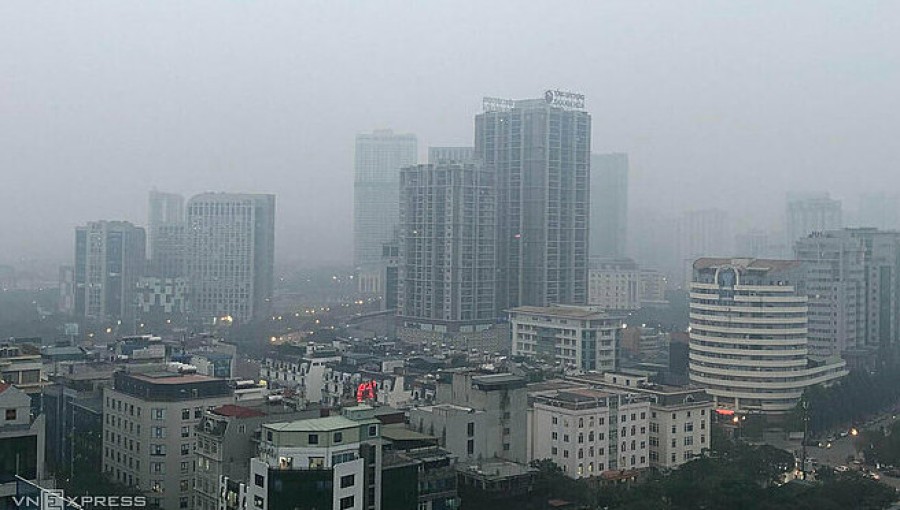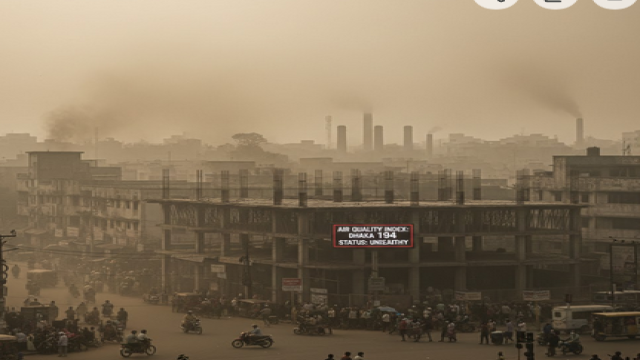Dhaka, Feb 22 (V7N) - Dhaka, the densely populated capital of Bangladesh, recorded the worst air quality in the world on Saturday (February 22, 2025), with an Air Quality Index (AQI) of 184 at 8:34 am.
Classified as “unhealthy,” the air posed a serious health risk to residents, according to the AQI index.
AQI values between 50 and 100 indicate ‘moderate’ air quality, while 101 to 150 is considered ‘unhealthy for sensitive groups.’ An AQI between 150 and 200 is ‘unhealthy,’ 201 to 300 is ‘very unhealthy,’ and anything above 301 is ‘hazardous,’ posing severe health risks.
Uganda’s Kampala (AQI 178), Poland’s Krakow (169), and Nepal’s Kathmandu (168) ranked second, third, and fourth in global air pollution levels.
The AQI measures daily air quality and its health impacts, based on five pollutants: particulate matter (PM10 and PM2.5), nitrogen dioxide (NO2), carbon monoxide (CO), sulfur dioxide (SO2), and ozone.
Dhaka has long struggled with air pollution, worsening in winter and improving during the monsoon.
According to the World Health Organization (WHO), air pollution causes an estimated seven million deaths worldwide each year, primarily due to stroke, heart disease, chronic obstructive pulmonary disease, lung cancer, and respiratory infections.
END/APR/RH/































Comment: